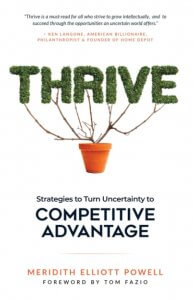4 Ways to Make Your Words Stick
Leaders are always under surveillance. Every action they take and word they speak is scrutinized. Words matter. What you say has consequences. They have the power to influence others or cost you credibility and trust. Your team wants a leader they can trust, someone whose influence motivates them to act. With influence comes serious responsibility. Leaders must acknowledge the impact their words have on others.
- Examine your message.
Consider these two statements:
“Our competitors have grown and cut into our sales. We must explore new markets to maintain a healthy bottom line.”
Vs.
“Our competitors have grown and cut into our sales. We must explore new markets or we will have make cut backs.”
These two statements share the same message, but the word choice impacts listeners in very different ways. If you are unsure how your words land, write them down ahead of time. Take five minutes before every virtual call or meeting to think about what you want to say, and the impact you want to make on your listeners.
- Say more with less.
People tend to believe the more they speak, the smarter they sound. When in fact, the more they speak, the more confused their listeners become. Listeners don’t have time to think through the clutter. If your message is long and hard to follow, listeners will tune you out. If you want others to remember what you say long after you say it, keep your message concise and get to the point.
- Beacon brevity.
When we try to make a point, too often we keep talking well past our point. Our brain lies, convincing us that the more we say, the smarter we sound. What we fail to realize is the torture we make our listeners endure as we ramble. Even worse, we often ramble with filler words that add nothing to our message. Now I know what you’re thinking, “when I know what to say I don’t speak with filler words.” The problem is that most of our conversations are impromptu. We don’t have the opportunity to prepare exactly what we want our listener to hear. Avoid how you feel to determine how succinct you are. We are good about preparing for presentations but allow day-to-day easy conversations to go off the cuff. This is when feedback wins. Find someone you trust and ask them to bring to your attention each time you speak with filler words such as “um and uh.” It won’t take long for you to recognize it yourself.
- Pauses have power.
Silence sometimes is the right answer. A speaker can use silence to deliver a message with maximum impact. The power of a pause allows listeners to consider what has been said. It gives their mind time to register the importance of words and permits you time to naturally transition to the next topic. It conveys a confident belief in the message shared, while allowing the brain time to focus on the next thought. The pause has the power to help your listeners remember what you said long after the interaction is over. Words matter. If you want to speak in a way that influences others to act, take on these four steps and make your words stick.
Stacey's Picks:

Thrive:Strategies to Turn Uncertainty to Competitive Advantage
Check out our Research on Influence in conjunction with the University of Northern Colorado HERE.



